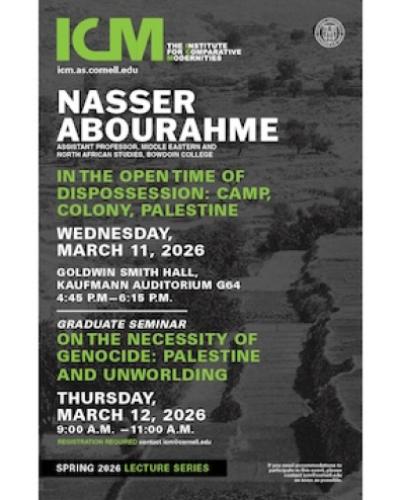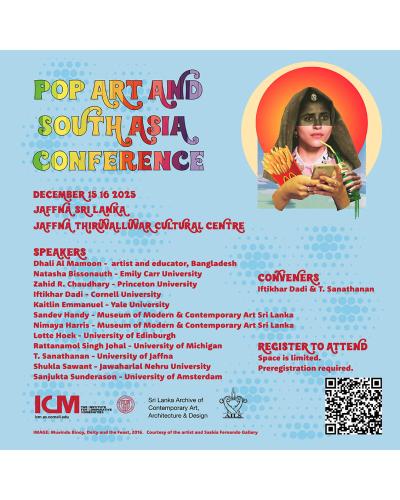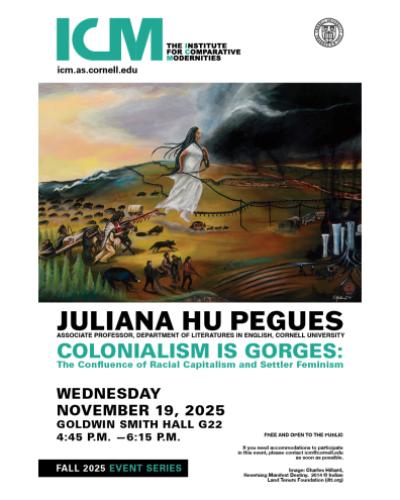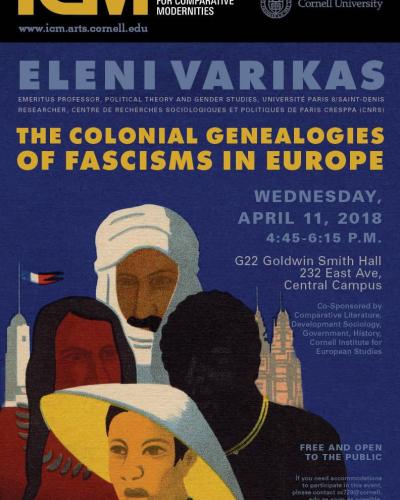G22 Goldwin Smith Hall
232 East Ave, Central Campus
ICM New Conversations Series
ELENI VARIKAS
Emeritus Professor, Political Theory and Gender Studies, Université Paris 8/Saint-Denis
Researcher, Centre de Recherches Sociologiques et Politiques de Paris Cresppa (CNRS)
In The Origins of Totalitarianism, first published under the title The Burden of Our Time, Arendt develops the ‘boomerang thesis’ suggesting that the roots of European totalitarianism, especially Nazism, lay in European overseas colonialism. The idea that imperial politics returned as a boomerang back to Europe in the form of fascism, Nazism and mass violence was also expressed by the Marxist theorist Karl Korsch at almost the same time as Arendt. According to Korsch, “The Nazis have extended to ‘civilized’ European peoples the methods hitherto reserved for the ‘natives’ and the ‘savages’ living outside so-called civilization” (Korsch 1942). Similar arguments were also developed by major African American intellectuals such as W.E.B. Dubois and A. Baldwin, by Caribbean Marxists such as Aimé Césaire, CLR James and others. Several historians of the Nazi occupation policies during World War II have pointed to the essentially colonial nature of the Nazi–German national project in the ‘Wild East’. According to Alexander Dallin, Hitler’s ‘favorite analogy’ was British India, with Russia as ‘Germany’s India’, while Robert Koehl has suggested the ‘Nazi East’ was a ‘cross between the American Wild West and British India’. Looking back at these disremembered genealogies in the light of the present rise of fascist and neo-Nazi movements, and of the contemporary immigration and refugee policies in Europe,Varikas reflects on this imperial and colonial under-current of Western history, which is once again coming to the surface, and inquires into the triumphant coming-back of race as a legitimate grid of political understanding.
BIO
Eleni Varikas is professor emerita of political theory and gender studies at the Université Paris 8/Saint-Denis and researcher at the Centre de Recherches Sociologiques et Politiques de Paris Cresppa (CNRS). She has lectured in several universities in Europe, the US and Brazil. Her articles and books on intellectual history, feminist theory, and the figure of the pariah have been published in several languages. Her recent publications include Les Femmes de Platon à Derrida (edited with Françoise Collin & Evelyne Pisier, 2000); Penser le Sexe et le Genre (2006); Les Rebuts du Monde: Figures du Paria (2007); Sous les Sciences Sociales le Genre: Relectures Critiques de Max Weber à Bruno Latour (edited with Virginie Descoutures, Danielle Chabaud-Rychter, & Anne-Marie Devreux, 2010); and “Genre, Modernités et ‘Colonialité’ du Pouvoir,” Cahiers du Genre, n° 50 (2010).
This event is free and open to the public. If you need accommodations to participate in this event, please contact cc729@cornell.edu as soon as possible.
Image Credit: Paris Colonial Exhibition poster image, 1931, detail.





